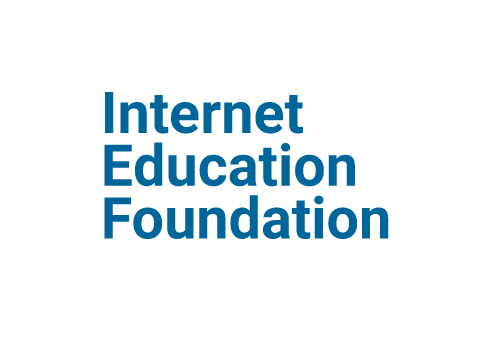Former White House Deputy CTO and Leading Higher Education IT NGO Rep Add To IEF’s Balanced Board
WASHINGTON, DC – The Internet Education Foundation (IEF) today announced that two new members, Rodney Petersen and Daniel J. Weitzner, have joined its board of directors adding to the impressive array of members that provide IEF the unimpeachable balance that is the hallmark of its programming. Weitzner, who co-founded IEF as an original board member, rejoins the board after an impressive stint at NTIA and the White House. Rodney Petersen is a respected IT security academic and professional working for the premier higher education IT non-profit EDUCAUSE.
Petersen and Weitzner will contribute to the diverse group of board members of IEF, the NGO that runs the Congressional Internet Caucus Advisory Committee (ICAC), The State of the Net Conferences and GetNetWise. The neutrality and balance of IEF, ensured by its board of directors, make these projects universally respected.
Contact:
Eric Hinkes
ehinkes@netcaucus.org
(202) 638-4370 x127
About:
Rodney Petersen
Rodney Petersen is Managing Director of the EDUCAUSE Washington Office and a Senior Government Relations Officer. He also directs the EDUCAUSE Cybersecurity Initiative and is the lead staff liaison for the Higher Education Information Security Council. Prior to joining EDUCAUSE, he served as the Director of IT Policy and Planning in the Office of the Vice President and Chief Information Officer at the University of Maryland. He previously held the position of Campus Compliance Officer in the Office of the President at the University of Maryland where he mediated disputes and handled grievances under the Human Relations Code, including claims of discrimination or harassment that increasingly involved misuse of the Internet. He also completed one year of service as an Instructor in the Academy for Community Service for AmeriCorps National Civilian Community Corps where he taught alternative dispute resolution and facilitated service learning projects. He began his professional career in higher education as the Resident Student Life Director at Michigan State University. He is the co-editor of a book in the EDUCAUSE Leadership Strategy Series entitled “Computer and Network Security in Higher Education”. He is also a founding member of the Association of College and University Policy Administrators and the author of “A Primer on Policy Development for Institutions of Higher Education” and “A Framework for IT Policy Development”. He writes and speaks regularly on topics related to higher education cyber law and policy. He received his law degree from Wake Forest University. He also received a certificate as an Advanced Graduate Specialist in Education Policy, Planning, and Administration from the University of Maryland.
Daniel J. Weitzner
Daniel J. Weitzner is the Director and co-founder of the MIT CSAIL Decentralized Information Group. His group studies the relationship between network architecture and public policy, and develops new Web architectures to meet policy challenges such as privacy and intellectual property rights. He teaches Internet public policy in MIT’s Electrical Engineering and Computer Science Department.
From 2011-2012, Weitzner was the United States Deputy Chief Technology Officer for Internet Policy in the White House, where he led initiatives on online privacy, cybersecurity, Internet copyright, and trade policies to promote the free flow of information. He also was Associate Administrator for Policy at the United States Commerce Department’s National Telecommunications and Information Administration (NTIA). Weitzner was also a member of the Obama-Biden Presidential Transition Team.
Weitzner has been a leader in the development of Internet public policy from its inception, making fundamental contributions to the successful fight for strong online free expression protection in the United States Supreme Court, crafting laws that control government surveillance of email and web browsing data. His work on US legislation limiting the liability of Internet Service Providers created the legal foundation for social media services and global free flow of information online.
Weitzner’s computer science research introduced Accountable Systems architecture to enable better awareness legal rules and automated compliance auditing. As head of the World Wide Web Consortium’s Technology and Society group, he also led the development of security and privacy standards, and new architectures used to make information on the Web easier to analyze. While at MIT, he launched the Web Science Research Initiative with Tim Berners-Lee, Wendy Hall, Nigel Shadbolt and James Hendler, a cross-disciplinary research initiative promoting research on the technical and social impact of the Web.
Before joining MIT, Weitzner was a founder and Deputy Director of the Center for Democracy and Technology, and Deputy Policy Director of the Electronic Frontier Foundation. He has testified before the United States Congress, the European Commission, and leading international bodies. Weitzner has law degree from Buffalo Law School, and a B.A. in Philosophy from Swarthmore College. His writings have appeared in Science magazine, the Yale Law Review, Communications of the ACM, the Washington Post, Wired Magazine and Social Research. In 2012 he was named to the Newsweek/Daily Beast Digital Power Index as a top ‘Navigator’ of global Internet public policy.
1634 I Street NW – Washington, DC 20006
www.NetCaucus.org
Find us on Facebook, Twitter, Google+ and LinkedIn
